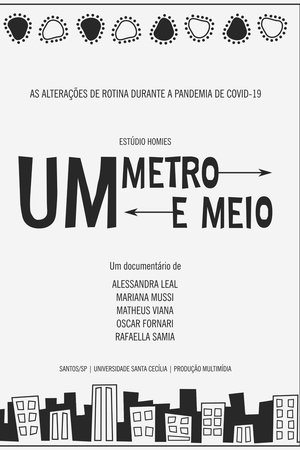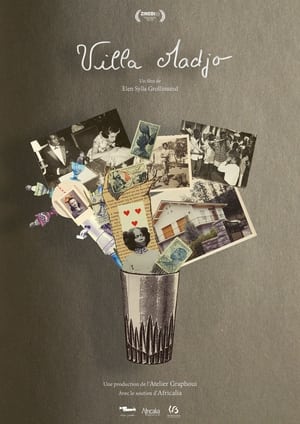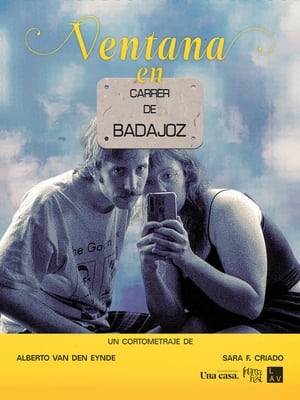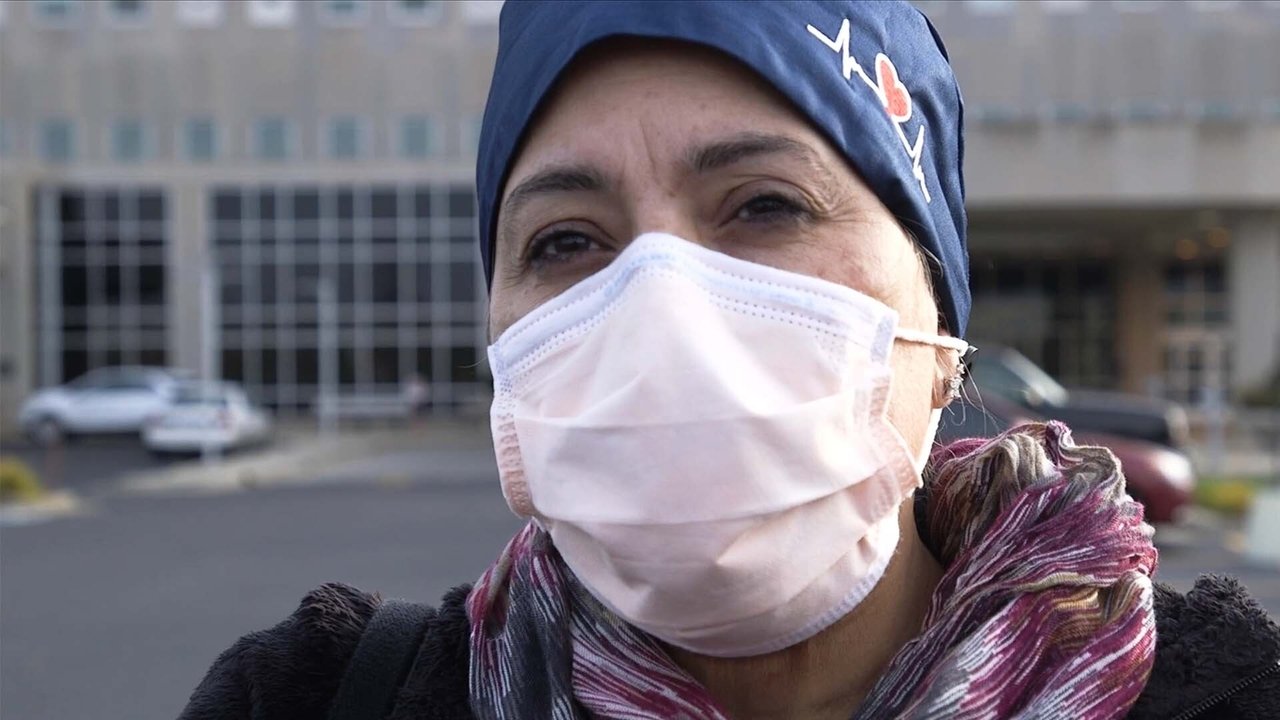
Conversations Between Shifts(2021)
A portrait of Chicagoland ICU nurse Jeanette Alvarez-Basem captured through the perspective of her son Ben Basem. Between her night shifts and Illinois Nurses Association union meetings, Jeanette navigates what it means to be a nurse and a human during the first year of the COVID-19 pandemic.
Movie: Conversations Between Shifts
Top 4 Billed Cast
Herself
Herself
Himself
Video Trailer Conversations Between Shifts
Similar Movies
 0.0
0.0Saving the Restaurant(en)
During the pandemic-induced lockdowns of 2020, a restaurant owner struggles to maintain his business.
 0.0
0.0A Land With No Ceremony(zh)
During 2020, when the pandemic policy loosened, a violinist went back to hometown to meet his parents and his friends. A sudden accident happened, everything changed, and a ceremony is no longer a "ceremony".
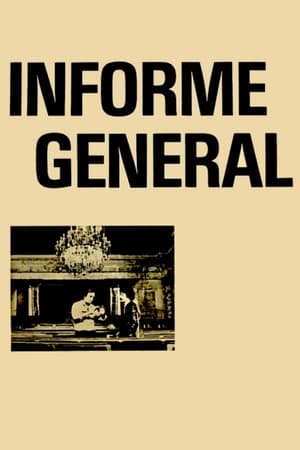 6.2
6.2General Report(es)
How does a country go from a dictatorship to a democracy? A detailed report on the political representation in the heart of the Spanish Transition, only a few months after General Franco’s death, when the sincere democratic vocation of Spanish people must effort to destroy, one heavy brick after another, the wall that those who supported the dictatorship and those who fought it from the exile built with resentment, hatred and prejudices.
 0.0
0.0As Goes Janesville(en)
A documentary of Janesville trying to recover from the closing of the GM automobile plant, in the midst of very divisive and historic political infighting between Republican's and Democrats in the state of Wisconsin.
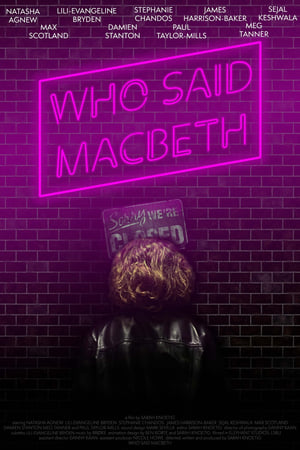 0.0
0.0Who Said Macbeth(en)
Although the past two years have been challenging for the Theatre industry, they also showed its incredible strength and resilience. Through interviews with West End performers and creatives, this documentary outlines the difficulties presented to our industry over the course of the pandemic, as well as highlighting changes - both positive and negative - that have come from it. An emotional reflection on a battle it was worth fighting for. All profits will be going to 'Acting for Others', an organisation that provides support to all theatre workers through 14 member charities. We hope these stories full of passion for Theatre inspire you just as much as they inspired us!
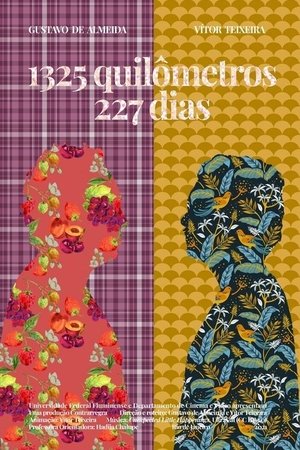 8.0
8.01325 Kilometers 227 Days(pt)
Vitor and Gustavo decided, in January 2020, to start a long-distance relationship, and were planning to meet again in a few months. Until COVID stopped them. This is the story of how they overcame the difficulties of time and distance through a lot of love and through Whatsapp audio messages.
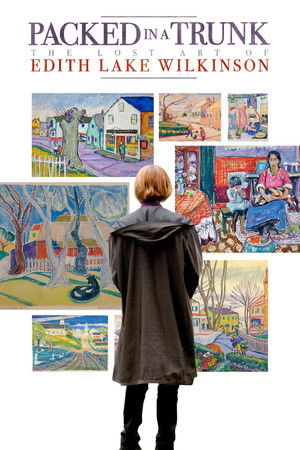 7.6
7.6Packed In A Trunk: The Lost Art of Edith Lake Wilkinson(en)
The story of artist Edith Lake Wilkinson, a painter who was committed to an asylum in 1924 and never heard from again. All her worldly possessions were packed into trunks and shipped to a relative in West Virginia where they sat in an attic for 40 years. Edith's great-niece, Emmy Award winning writer and director Jane Anderson, grew up surrounded by Edith's paintings, thanks to her mother who had gone poking through that dusty attic and rescued Edith's work. The film follows Jane in her decades-long journey to find the answers to the mystery of Edith's buried life, return the work to Provincetown and have Edith's contributions recognized by the larger art world.
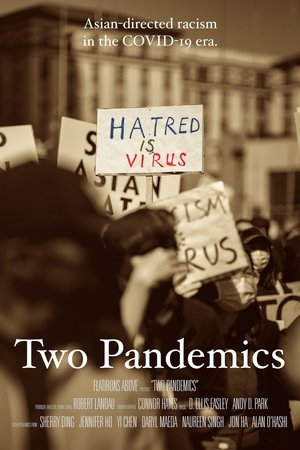 0.0
0.0Two Pandemics(en)
Seven Asian-Americans discuss their experiences with racism and the spike in Asian-directed hate crimes as a result of COVID-19.
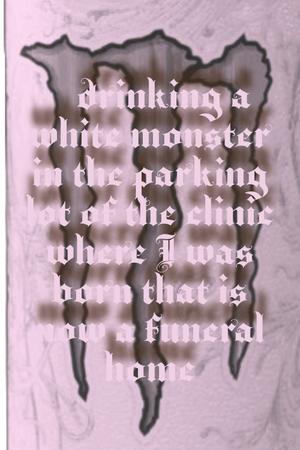 0.0
0.0Drinking a Monster in the parking lot of the clinic where I was born that is now a funeral home(en)
A woman returns to the site of her birth, which is now a funeral home. She drinks a white monster energy drink.
 0.0
0.0Nazaten(nl)
Frans Bromet goes in search of his family history and discovers that Hermanus Bromet was a well-known slave trader in Suriname. Should he feel guilty for what his ancestor did? How do you deal with a burdened family past?
Northern Minnesota's Labor Wars(en)
Filmmaker Gary Kaunonen of KCC-TV in International Falls just released a new documentary about a pivotal time in Northern Minnesota’s labor history. It’s called “Northern Minnesota’s Labor Wars.” The years 1916 and 1917 brought major labor uprisings in the mines of the Mesabi Iron Range and the lumber camps of the state’s far northern pine forests. These events not only shaped local history, but became vital turning points in the national and international labor movement.
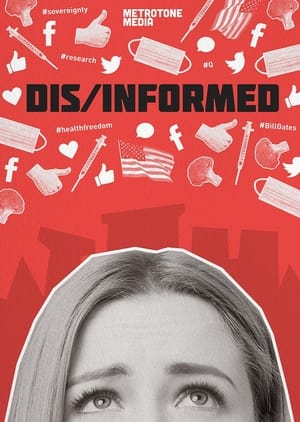 0.0
0.0Dis/Informed(en)
Are conspiracy theorists just "dumb"? What links anti-vax sentiment and QAnon? Disinformation expert Dr. Charles Kriel and director Katharina Gellein Viken go on the road to find out why yoga moms have fallen for conspiracy theory during the pandemic. The answers are not what you might think.
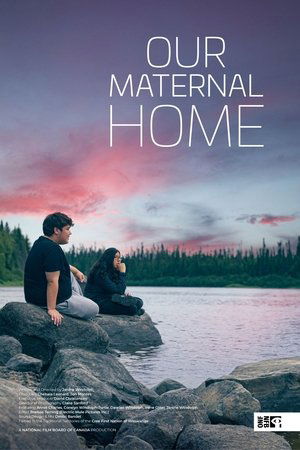 8.0
8.0Our Maternal Home(en)
Filmmaker and educator Janine Windolph ventures from Saskatchewan to Quebec with her two teens and younger sister, tracing their familial origins to the Cree First Nation of Waswanipi. Against the scenic backdrop of these Traditional Lands, Elders offer newfound interdependence and hands-on learning, transforming this humble visit into a sensory-filled expression of reclamation and resilience. Our Maternal Home lovingly establishes a heart-centred form of resistance to confront and heal from the generational impacts of cultural disconnection, making space for what comes next.
 0.0
0.0These were the reasons(en)
This film takes us into the harsh realm of BC's early coal mines, canneries, and lumber camps; where primitve conditions and speed-ups often cost lives. Then, the film moves through the unemployed' struggles of the '30s, post WWII equity campaigns, and into more recent public sector strikes over union rights.
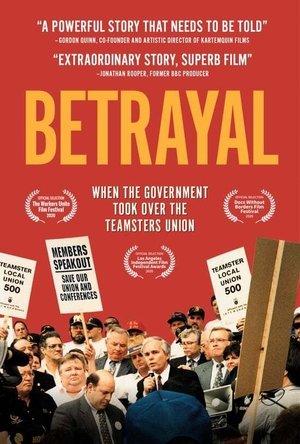 0.0
0.0Betrayal: When the Government Took Over the Teamsters Union(en)
In a highly controversial move, the Justice Department used the RICO statute to take over the entire International Brotherhood of Teamsters, denying free speech and due process for 1.4 million union members over a 30 year period. 'Betrayal: When the Government Took Over the Teamsters Union' explores how the Justice Department violated the law and failed to protect constitutional rights of union members.
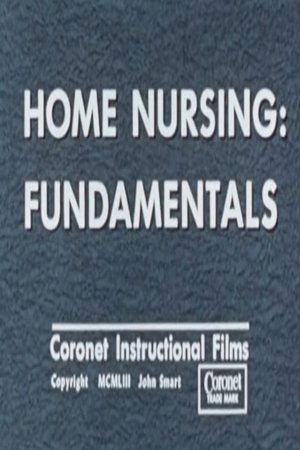 0.0
0.0Home Nursing: Fundamentals(en)
Illustrates various techniques and household arrangements for caring for the convalescent patient at home. Shows ways of arranging the sick room, making the beds, washing and serving the patient, caring for the thermometer, and removing soiled linens. Pictures the distribution of chores among the family members and demonstrates some necessary precautions to prevent the spread of the illness.
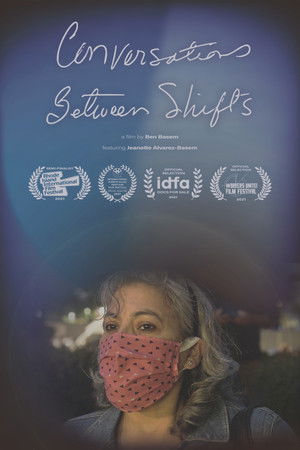

![CONVERSATIONS BETWEEN SHIFTS [Official Trailer]](https://img.youtube.com/vi/564295338/sddefault.jpg)
